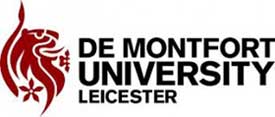About Nutrition Bsc (hons) in De Montfort University
Diet, nutrition and food are critical to our health and our quality of life. A poor diet can have a significant effect on health and contribute to a range of conditions, such as cardiovascular disease, diabetes and obesity.
Covering core nutrition science along with medical science, this research-led course combines theoretical and practical elements to take you from farm to fork and science to shelf, and considers the sources and origins of food along with food composition and production.
Our experienced academics bring industry research and knowledge to their teaching. You will study a range of modules that cover nutritional biochemistry, organ systems physiology, nutrition and metabolism, and health education and promotion. International elements are embedded into the curriculum, allowing you to consider nutrition and health on a global scale.
Practical components will help you acquire skills to further enhance your learning and employability. Optional sandwich year work placements, enabling you to gain valuable experience in an industry setting, are on offer.
Graduates will have the knowledge and skills to work in a range of settings in the public and private sector, from giving nutritional advice to NHS patients to working in the food production industry.
Key features
- Learn about the impact of diet on our health and understand interventions to tackle obesity and other contemporary health concerns that affect people on a local, national and international level.
- Optional work placement opportunities offered through our DMU Works careers programme will enable you to gain experience in an industry setting.
- Practical components of the course will help you develop personal and professional skills, while the final-year supervised research project will enable you to tailor your learning and build research techniques.
- International experiences allow you to broaden your cultural horizons and experience different healthcare environments. Our students have previously had the opportunity to provide healthcare in India, witness the effects of poverty in Florida and help refugees in Berlin.
- Graduates can pursue careers in the public or private sector, working as nutritionists as well as in roles in research and development, education, health journalism, public health and the food industry.
Personal statement selection criteria
- Clear communication skills, including good grammar and spelling
- Information relevant to the course applied for
- Interest in the course demonstrated with explanation and evidence
- If relevant for the course - work and life experience
Minimum of 65% average in your four best subjects (excluding Hindi) in Standard 12. We may also check your standard 10 results in English and Maths
If English is not your first language, you will be required to provide an IELTS certificate, or equivalent. Our undergraduate IELTS requirements are:
If English is not your first language an IELTS score of 6.5 or equivalent when you start the course is essential.
De Montfort University Highlights
| Type of Institution |
Public |
| Campus Setting |
Urban |
| Endowment |
£1.17 million |
| Number of Campuses |
4 faculties |
| Number/Percentage of International Students |
23205 |
| Total number of Professors |
3240 |
| Student Satisfaction Rate |
86% |
| Graduate Job Rate |
97.3% |
| Number of Residence Vacancy |
Around 3000 |
| International fee |
Undergraduates- £13240 (annual) Postgraduates- £15950 (annual) |
| Number of Academic Programs |
UG, PG, Part time, distance, blended |
| Mode of Program |
Full time, distance and online |
| Average Graduate Salary |
19800 pounds a year |
De Montfort University The tuition fee (In GBP) for various programs is tabulated below:De Montfort University Average Cost
| Field of Study |
Avg.Fees |
| Art, Design and Humanities: |
£13,750 |
| Business and Law |
£13,750-£14,550 |
| Media |
£13,750 - £14,250 |
| Engineering |
£14,250 |
| Computing |
£14,250 |
| Health and Life Sciences |
£13,250 - £14,250 |
| Nursing BSc |
£14,950 |
De Montfort University The Average Tuition Fees and Other Expenses
| Expenses |
Estimated cost in pounds |
| Undergraduate tuition fee |
13,250- 14950 |
| Postgraduate tuition fee |
13600-15,900 |
| On campus accommodation |
5,000-6040 |
| Average cost of living |
97-110 per week |
DMU International Scholarship up to 1500 pounds
- TEF Gold Outstanding Alumni Scholarship up to 3000 pounds
- Leicester Castle Business School Scholarships:
- Global MBA Scholarship £3,000 - £5,000
- Full Postgraduate Scholarship
- LGBTQ + Allies Scholarship-two fully funded post graduate taught scholarship packages including full fee weaver and maintenance bursary.
- Vice Chancellor's Sports Scholarship- three different scholarship packages are available with eligible students being awarded up to 6000 pounds of support.
